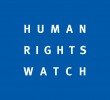The European Federation of Journalists (EFJ) today welcomed a decision by European institutions to exclude violations of privacy and defamation from the draft regulation that would determine which country�s law is applicable in cross-border disputes.
The Rome II Regulation provides that in non-contractual disputes, as a general rule, the law of the EU Member State in which the damage arises or is likely to arise will apply.
�While journalists must take responsibility in cases of violation of privacy or defamation, they should not have to check all national laws in the EU to ensure that their work does not infringe a legal provision in another Member State� said Arne K�nig, EFJ Chair.
In the initial Rome II proposal presented by the European Commission, violations of privacy and rights relating to personality were falling within the scope of the regulation. The application of such a rule to violations of privacy and rights relating to the personality would have had a detrimental effect on freedom of the press and freedom of expression with journalists running the risk to be sued according to the national law of any of the 27 Member States of the EU.
�To put such a burden on journalists would have increased self-censorship, thus undermining the public�s right to know�, K�nig added. �Exclusion of these obligations is excellent news for the freedom of expression and for the freedom to receive information.�
This exclusion is one of the main points of the agreement reached by the Parliament-Council Conciliation Committee on 16 May, following several weeks of negotiations between representatives of the European Parliament and the Council.
This result was achieved after the EFJ and a coalition of media owners, including ENPA, FAEP, FEP, EBU and EPC, worked together to convince the European institutions that the regulation should not apply to media activities.
The EFJ is still concerned, however, that a review clause requests the Commission to present, no later than 31 December 2008, a study on violations of privacy and rights relating to personality. Despite the cautious wording � the study must take into account rules relating to freedom of the press and freedom of expression in the media � the EFJ fears that the review of the Rome II regulation will be the occasion for new assaults against press freedom.
For more information contact the EFJ at 32 2 235 22 00
The EFJ represents over 260,000 journalists in more than 30 countries










